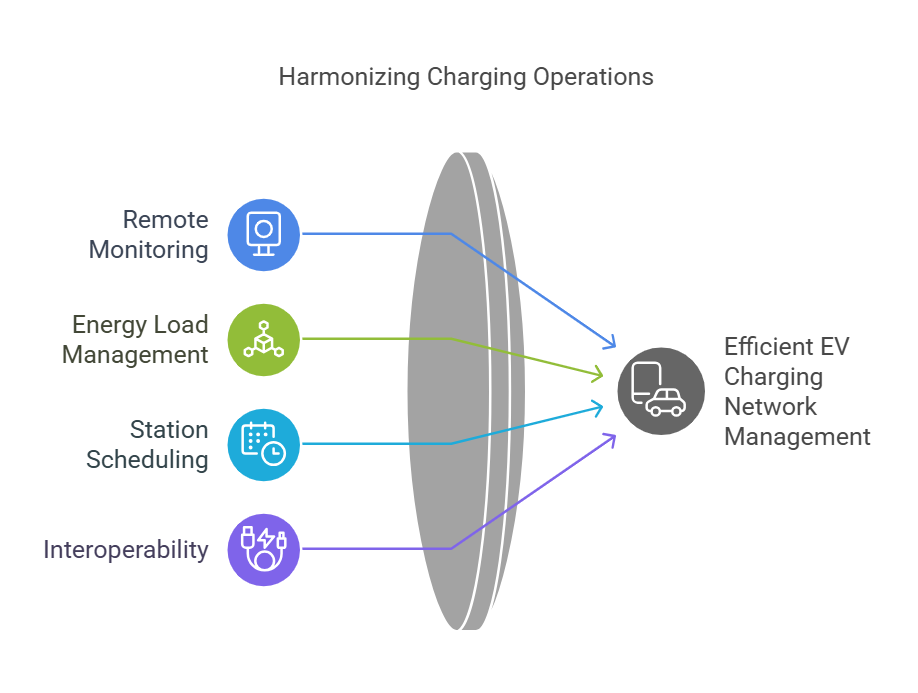EV charging software systems are the essential digital infrastructure behind modern charging networks, enabling seamless operation, optimized performance, and enhanced user experiences. These systems integrate advanced technologies to manage charging stations, process payments, and analyze data, ensuring the network is reliable, scalable, and efficient. As the electric vehicle (EV) market expands, EV charging software systems play a crucial role in meeting the increasing demand for sustainable and user-friendly charging solutions.
EV charging software systems are designed to streamline the management of charging networks, ensuring operational efficiency and adaptability to diverse conditions. These systems provide operators with the tools to monitor, control, and optimize station performance in real time. Key capabilities include:

Payment processing and user interfaces are core components of EV charging software systems, shaping the charging experience for EV drivers. Effective systems prioritize security, flexibility, and simplicity while supporting diverse payment methods.
Data analytics is a cornerstone of EV charging software systems, enabling operators to gather insights that drive operational improvements and user satisfaction. By analyzing real-time and historical data, these systems help optimize station performance and anticipate future needs.

Despite their many advantages, EV charging software systems face several challenges that must be addressed to maintain efficiency and reliability.
The future of EV charging software systems is defined by innovation and the pursuit of greater efficiency, security, and user-centric design. Emerging trends include:
Addressing the challenges facing EV charging software systems requires proactive strategies and collaboration among stakeholders.
EV charging software systems are at the heart of modern EV infrastructure, enabling efficient operations, seamless user experiences, and advanced data-driven optimization. By leveraging cutting-edge technology and addressing industry challenges, these systems will continue to play a pivotal role in shaping the future of sustainable transportation. As the EV market evolves, the innovations within these software solutions will ensure charging networks remain adaptable, efficient, and user-focused.